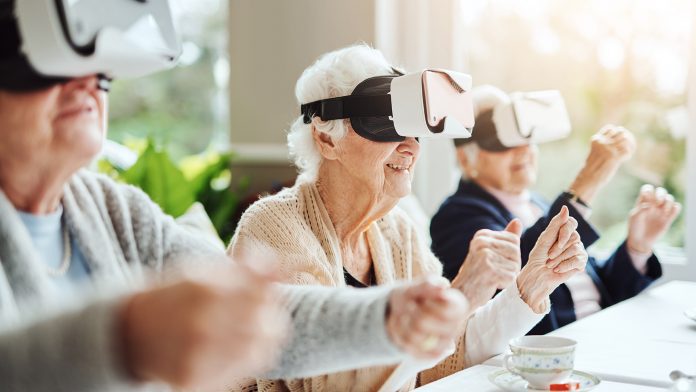
UK-based research suggests that a virtual reality (VR) test could be employed to assess an individual’s cognitive functioning effectively.
A study conducted by a team at the Institute of Psychiatry, Psychology & Neuroscience (IoPPN) at King’s College London has revealed that a VR test where participants “go to the shops”, may be able to determine the performance of their functional cognition – their thinking and processing skills used to conduct daily tasks.
The research, which was funded by the Medical Research Council and the National Institute for Health Research Maudsley Biomedical Research Centre, is published in the Journal of Medical Internet Research.
Limitations of current methods
Traditional cognition tests that are utilised to examine the deficits in various neuropsychiatric disorders, such as Alzheimer’s disease, schizophrenia, and depression, are usually time-consuming and arduous to perform. In an attempt to streamline this process, the team used VStore, a virtual reality shopping task in which participants take part in tests designed to mirror real-world situations.
The team is hopeful that their innovative VR test will provide a more accurate, engaging, and cost-effective alternative and become a standard method for testing for age-related cognitive decline in the future.
VR test performance
The team conducted a trial with 142 individuals aged between 20 and 79 years to investigate the VR test. Virtually, the individuals were asked to go to the shops and verbally recall a list of 12 items, subsequently being assessed for how long it took to collect the items and select the corresponding items on a virtual self-checkout machine, pay, and order coffee.
Due to the immersive nature of the virtual environment, the participants were better able to engage brain structures associated with spatial navigation, for example, the hippocampus and entorhinal cortex, which can be affected in the early stages of Alzheimer’s disease.
The team identified that the VR test effectively engaged numerous essential neuropsychological functions simultaneously, suggesting that the functional tasks in the virtual reality setting may outperform conventional assessments as it stimulates a greater range of cognitive domains.
Professor Sukhi Shergill, the study’s lead author from King’s IoPPN and Kent and Medway Medical School (KMMS), said: “Virtual Reality appears to offer us significant advantages over more traditional pen-and-paper methods. The simple act of going to a shop to collect and pay for a list of items is something that we are all familiar with but also actively engages multiple parts of the brain. Our study suggests that VStore may be suitable for evaluating functional cognition in the future. However, more work needs to be done before we can confirm this.”
Lilla Porffy, the study’s first author from King’s IoPPN, said: “These are promising findings adding to a growing body of evidence showing that virtual reality can be used to measure cognition and related everyday functioning effectively and accurately. The next steps will be to confirm these results and expand research into conditions characterised by cognitive complaints and functional difficulties such as psychosis and Alzheimer’s Disease.”







